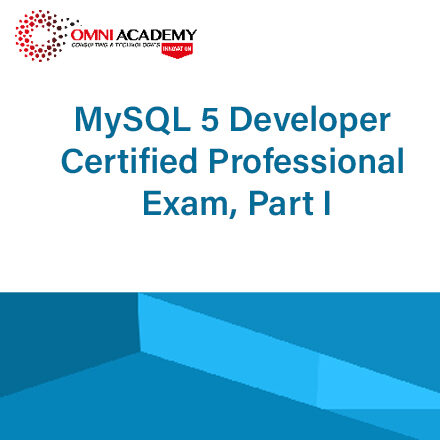Oracle Fusion Distributed Order Orchestration Essentials –
1Z0 469
Oracle Fusion Distributed Order Orchestration works to normalize processes and data across multiple-order capture and order-fulfillment applications, providing a single view of all order and fulfillment information.
It aggregates orders from a variety of order capture applications and groups them to create a combined fulfillment plan that makes the best use of company resources. It includes native exception management and embedded business analytics.
You can integrate Siebel Customer Order Management with Oracle Fusion Distributed Order Orchestration, allowing you to view the fulfillment information from other applications directly within the Siebel application. This integration enables you use the Siebel application to:
- Track the fulfillment status of orders.
- Revise or cancel orders only if they have not yet been shipped.
- Track the status of return merchandise authorization orders.
- Check the availability of products that customers order
Certification Benefit
Course Outline:
Module1:DOO Application Overview
- Explain Order Orchestration Architecture and Components
- Explain Decomposition, Order and Order Line Types, and Orchestration Terminology
- Use the Order Orchestration Work Area Overview
- Monitor Orders with Exceptions
Module2:Fusion Functional Set Up Manager
- Manage the Application Implementation Lifecycle
- Explain Functional Set up Enterprise Roles
- Plan an implementation
- Configure offerings
- Generate Setup Task Lists, offerings and options
- Assign tasks to users
- Manage implementation projects
- Export and import Configuration Packages
Module3:Common Applications Configuration for Order Orchestration
- Manage Enterprise Structures
- Implement Applications Security and the Security Reference Manual
Module4:Common Order Orchestration Configuration
- Explain Unit Of Measure and Product Model
- Manage Trading Community Source Systems
Module5:Orchestration Source Systems and Orchestration Collected Data
- Explain Entities for Collection before Receiving Orders, Source-Specific Entities versus Global Entities, and Data Collection Methods
- Manage Data Cross-Reference
- Manage Orchestration Source Systems and Data Collecting Processes
Module6:Define Sales Order Fulfilment – Define Transformation Details
- Explain Transformation Concepts
- Manage Product-to-Product Transformation (Product-to-Product, Attribute-to-Product, Context-to-Product, Product-to-Attribute, Attribute-to-Attribute, Context-to-Attribute)
- Transformation Using Oracle Business Rules
Module7:Define Orchestration – Manage Orchestration Process Definitions
- Explain Orchestration Orders, Orchestration Order Lines, and Fulfillment Lines and Task Types
- Manage Orchestration Process Definition
Module8:Define Orchestration – Manage Statuses
- Manage Assignment of Statuses, Orchestration Process Statuses
- Explain Status Conditions, Orchestration Process Status Conditions and Fulfillment Line Status Conditions
Module9:Define Orchestration – Change Management
- Explain Change Management, how it works, and Change Management Parameters
- Manage Compensation and Change Attributes
Module10:Planning and Jeopardy
- Manage Jeopardy Priorities and Planning Parameters
- Manage Jeopardy Threshold Definitions
Module11: Release and Deploy Orchestration Processes and Manage Orchestration Process Assignment Rules
- Release and deploy Orchestration Process Definition
- Validate new or updated Orchestration Process Definitions
- Download Orchestration Process Definition, modify the SOA Configuration Plan, and deploy the JAR File
- Manage Orchestration Process Assignment Rules
Module12:PManaging External Interfaces
- Explain Integration using the External Interface Layer
- Manage Integration with Oracle Fusion Distributed Order Orchestration and manage External Interface Routing Rules
- Explain External Interface Web Service Details
Module13:Define Processing Constraints and Manage Hold Codes
- Explain Process constraints and components
- Manage Constraint Entities and “Processing Constraints”
- Manage “Holds”
Module14:Define Order Promising
- Manage “Organization Details” in Source Systems
- Manage Profile Options, Sourcing Rules, Assignment Sets and Bill of Distribution
Module15:Collect Order Promising Reference and Transaction Data
- Explain data collection methods (Targeted Collections, Continuous Collections)
- Explain Staging Table Upload
- Manage the Order Promising Data Store and Engine
Module16: Manage Order Promising Rules
- Manage Order Promising Rules
- Explain ATP Rule Promising Modes
INTERNATIONAL STUDENT FEE 500 USD
Job Interview Preparation (Soft Skills Questions & Answers)
- Tough Open-Ended Job Interview Questions
- What to Wear for Best Job Interview Attire
- Job Interview Question- What are You Passionate About?
- How to Prepare for a Job Promotion Interview
 Your FREE eLEARNING Courses (Click Here)
Your FREE eLEARNING Courses (Click Here)
Internships, Freelance and Full-Time Work opportunities
Flexible Class Options
- Week End Classes For Professionals SAT | SUN
- Corporate Group Trainings Available
- Online Classes – Live Virtual Class (L.V.C), Online Training
Popular Courses
Oracle Fusion Procurement Cloud 2017 – 1z0-963
Oracle Order Management Cloud – 1z0-347
Oracle Human Resource Cloud 2017 – 1z0-965
Oracle Sales Cloud – CRM
Oracle Business Intelligence Cloud
[/vc_column_text]








